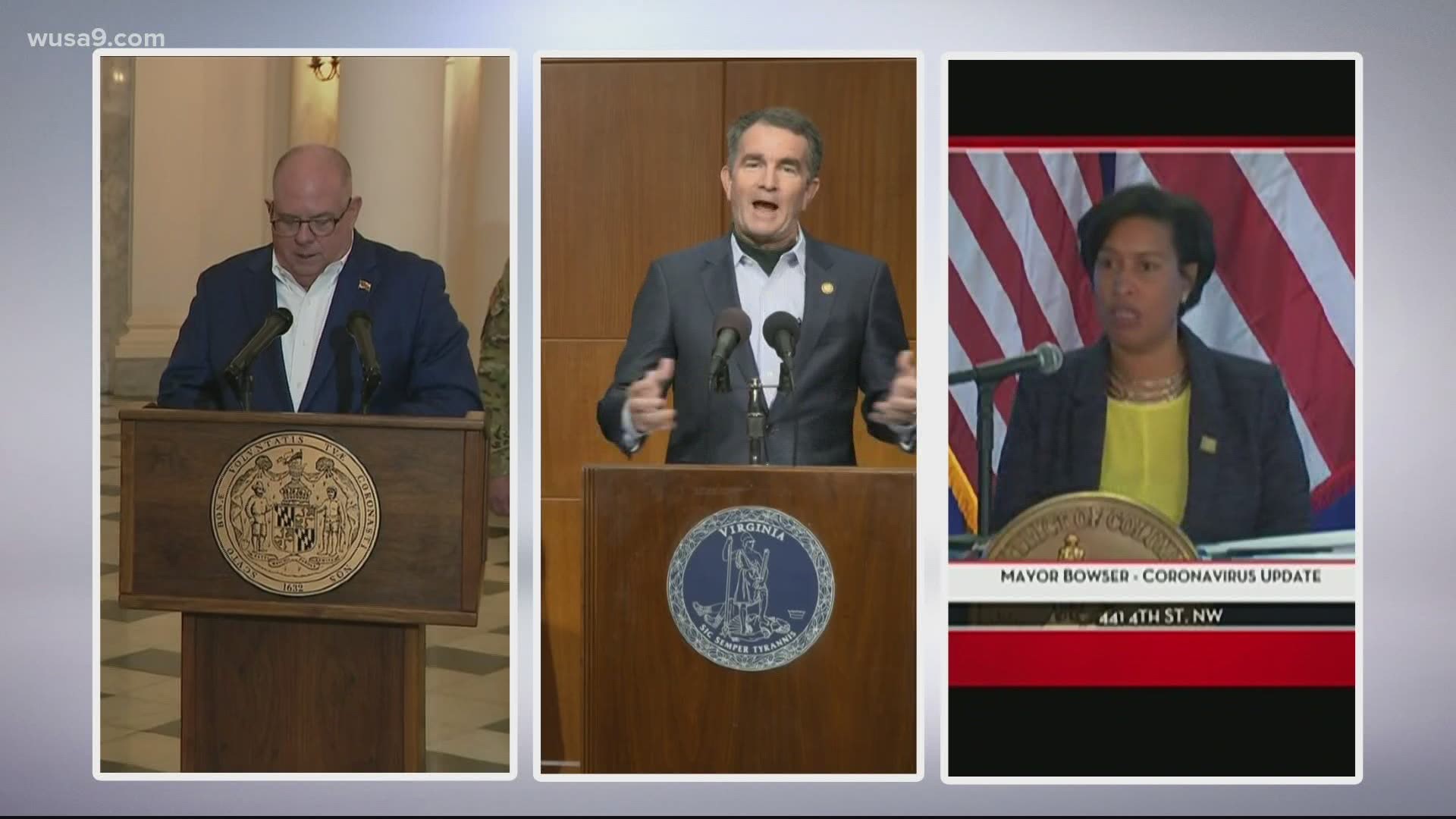WASHINGTON — D.C.’s mayor is calling on locals to join the District’s coronavirus Contact Trace Force.
Mayor Muriel Bowser first mentioned the need to expand coronavirus contact tracing in D.C. last week.
D.C. currently employs 65 contact tracers who identify cases of community spread around the District, according to the Mayor.
"The goal of contact tracing is to identify nearly all cases of COVID-19, isolate infected individuals, find and alert their contacts, and then quarantine all the contacts,” she said.
Bowser said the D.C. Department of Health is now in the process of increasing its contact tracing staff from 65 to 200 workers. She said she believes D.C. will eventually need 900 people to conduct the task in the future.
"How we identify [the sick], isolate them, reach their contacts, and quarantine them, will determine how successful we are in reopening,” she said.
The District government posted openings for new contact tracing positions to its website Wednesday. The health department jobs are titled as investigator, lead investigator and program manager.
The positions are available full-time and part-time, according to Bowser. People who are hired to fill the openings will work for 13 months. The mayor said it is likely the positions will involve remote and in-person work.
Malachi Stewart works as a contact tracer for DC Health.
He said the work is not much different from when he performed the duties of a disease intervention specialist identifying the spread of sexually transmitted diseases.
Stewart said, in both cases, it is important for investigators to build a rapport with the people they are interviewing to gain as much information about possible community spread as possible.
“As a person who is used to calling people and having hard conversations about some topics, you're sort of using those skills,” he said.
Stewart said contact tracers will call people to let them know they may have been in an area where the coronavirus was detected. After that, tracers will assess signs and symptoms of the coronavirus from the person they are talking to.
"[We’ll ask] what health equipment did you have on?” he said. “Were you wearing a mask? Were you staying 6 feet away from people?”
The answers contact tracers receive ultimately shape the rest of the conversation.
Stewart said it’s not uncommon for the people tracers contact to exhibit some anxiety.
"I think people's main concern is sort of around what needs to happen next, what do I need to do?” he said. “Am I going to get access to the test? Am I going to get access to the resources that I need?"
In other cases, Stewart says people will be vigilant and contact D.C.’s health department first if they are concerned that they may have encountered an infected person.
"The public is really who we rely on to give us this information and their cooperation has been very much appreciated and has really been helpful,” he said.
The open contract tracing positions have different ranges of pay. Employees may also be required to work during evenings and weekends.
If you would like to learn more about the positions, click on this link and then type the words “contact trace” in the “search jobs” field.

